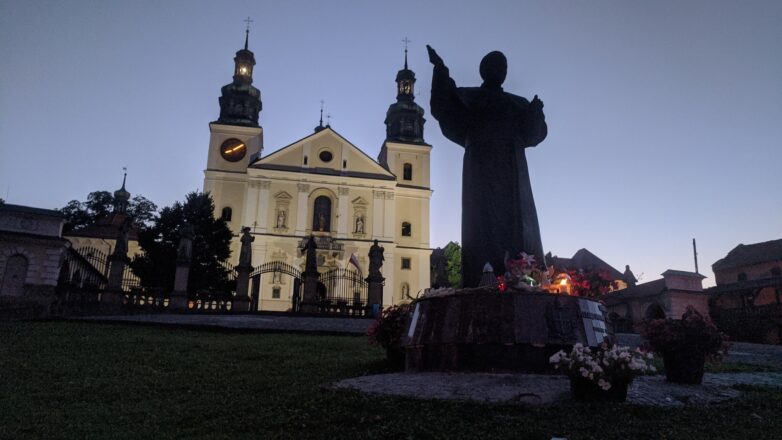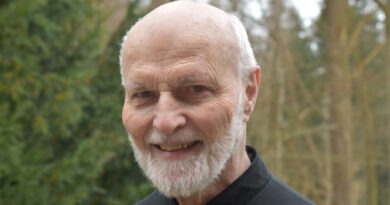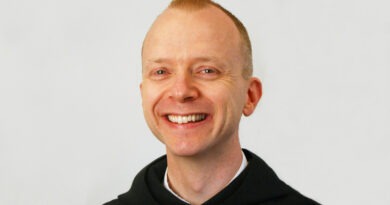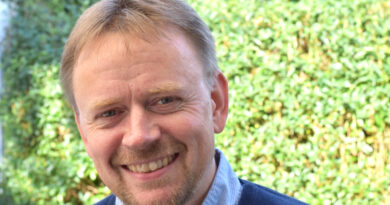
Overskrifter
Regardless of intense secularisation tendencies, Polish society remains strongly attached to faith and the local Church has an enormous apostolic potential, incomparably greater than in many other countries.
Religiousness
91.9 percent of Poles claim to be members of the Catholic Church. In 2019, 32,461,000 believers-members of the Catholic Church in Poland were grouped in 10,382 parishes (9,666 diocesan and 666 led by religious congregations).
In Poland, in spite of strong secularisation tendencies in our cultural environment, compared to other European countries, the religiousness indicators are decreasing slowly; sociologists call this "creeping secularisation". In 1990, 50.3 per cent of those obliged attended Sunday Mass; in 2013 this percentage fell to 39.1 per cent and in 2019 to 36.9 per cent (latest survey).
According to the Institute of Statistics of the Catholic Church, about 11 per cent of people claim to be deeply religious. Women are more likely to believe, with 14.4 per cent deeply religious and 70.3 per cent religious, while men are 7.6 per cent deeply religious and 68.8 per cent plain religious.
Apostolic structures and resources
The Church in Poland consists of 15 metropolises composed of 45 dioceses, including three belonging to the Byzantine-Ukrainian Rite Church; there is also a Military Diocese. One-third of Poland’s 154 bishops are retired. There are 44 diocesan bishops and 55 auxiliary ones. An average bishop is 66 years old, comes from a village or a small town and has a doctorate in theology. The average age of an auxiliary bishop is 59 and that of a diocesan bishop is 64.
In Poland, we have 33,600 priests: 24,700 diocesan ones and 8,900 religious priests. There are also 1,200 brothers and about 19,000 religious sisters. Such a high number of priests is the effect of the “vocation boom” from the time of John Paul II. At present, there are half fewer candidates to the priesthood.
Consecrated life
Female religious congregations
In Poland, there are 104 active and 13 contemplative congregations. Over 17,000 sisters live in active congregations and 1,270 are contemplative nuns. Religious sisters run 109 Caritas Centres, 45 volunteer groups and 39 prison ministry groups. The nuns also evangelise through the media: on the radio, on television or online. They run 6 publishing houses, ca. 500 websites and ca. 400 accounts on Facebook and Twitter.
Male religious congregations
Poland has 11,173 men religious, members of 59 congregations. The most numerous of these are: Franciscans (1,233), Salesians (992), Conventual Franciscan (926), Pallottines (592), Jesuits (586), Dominicans (439), and Redemptorists (413).
Male institutes of consecrated life run 708 parishes, 174 shrines, 111 independent rectorates and vicariates, and 453 other churches and chapels. Men religious are bishops (40), parish priests, vicars, exorcists, hospital chaplains, spiritual directors and chaplains of religious sisters, student chaplains, spiritual ministers of religious movements and associations and directors of many special groups of the faithful. The religious orders run their own educational institutions: 14 nurseries, 44 primary schools, 45 secondary schools, 8 vocational schools, 8 technical schools, 10 colleges, and 97 oratories for children and young people. Each year, they hold more than 1,700 residential trips for nearly 30,000 children and over 100,000 young people.
Charitable work
The Catholic Church is the second largest organisation in Poland (after the state) that provides assistance to the needy. Charitable work is carried out on several levels, in diocesan institutions, religious orders, parish communities, movements, associations, and foundations. Caritas Polska and 45 diocesan Caritas units are the largest charitable organisations in Poland. They are in charge of a few thousand centres which assist the most vulnerable members of the society.
Charity work is carried out in a vast majority of Polish parishes by as many as 3,250 parish Caritas units and a number of parish organisations and communities.
Congregations of women religious are in charge of 72 children’s homes, including 13 familyrun children’s homes, 112 social welfare homes for children, young people and adults, 28 nursing homes, 5 institutions providing 24-hour care for the disabled, 10 homes for mothers with small children, 2 shelters for the homeless and 2 homes for those recovering from homelessness, 25 soup kitchens for the poor, and 95 food distribution sites. The services provided by women's religious orders in Poland also include more than 30 nursing homes, 2 hospitals, 25 doctors' surgeries, 6 rehabilitation centres, 3 hospices, 38 windows of life, 65 retreat centres, and 57 recreational homes for lay people.
As part of their charitable activities, male religious orders run 7 hospitals, 12 hospices, 9 clinics and health centres, 27 nursing homes, 8 youth education centres, 14 therapy centres for addicts and 9 shelters or night shelters for the homeless. Many charity centres are located at parishes and religious communities, including e.g. 69 psychological and educational counselling centres, 112 day-care centres for children, 50 soup kitchens, 28 family assistance centres, and 28 occupational therapy workshops.
The laity
A 2018 study showed that about 8 per cent of Polish Catholics are so-called committed believers. The Catholic movements, communities and associations of the laity present in Poland are very diverse. Some communities, such as the secular Franciscan, Dominican or Carmelite communities, have existed for centuries. The Living Rosary, established in late 19th c., is one of the most numerous and oldest lay communities in Poland.
There are also contemporary movements and communities that have been transplanted to Poland from abroad: Renewal in the Holy Spirit, Neocatechumenal Way, Legion of Mary, Prelature of the Holy Cross, Opus Dei, and the Faith and Light Movement.
Native Polish new communities include Ruch Światło-Życie (Light-Life Movement, known as the Oasis), Domowy Kościół (Home Church), Spotkania Małżeńskie (Encounters of Married People), Przymierze Rodzin (Family Alliance), and Rodzina Rodzin (Family of Families). Of major importance among the re-established pre-war structures of the laity is Catholic Action, focused in particular on social activities, and the Catholic Youth Association.
Clubs for Catholic Intelligentsia play an important role among the elites.
According to a study by the Institute of Statistics of the Catholic Church, the 65,500 more or less formal organisations affiliated with parishes have a membership of 2,570,000 people. Of these, 61 percent care for children or young people, 54 percent for the elderly, 32 percent for the poor, 24 percent for persons with disabilities, 14 percent for the unemployed, and 14 percent assist victims of violence.
Pilgrimage movement
Poles are a nation that values pilgrimages. Before the pandemic, about 7 million Poles annually embarked on pilgrimages to various places in Poland and abroad. There are 1,050 shrines in Poland: 793 Marian ones, 126 shrines of the Lord and 131 ones connected with the saints. About 500 of them are regular pilgrimage destinations. The most important shrine in the country is Jasna Góra. In 2019, it was visited by 4,400,000 pilgrims, including 133,000 arriving at the shrine of Our Lady on foot. Other most visited shrines include the Divine Mercy Shrine in Krakow Łagiewniki, which annually attracts around 2 million people from 90 countries. The other most visited sanctuaries are the Sanctuary of Our Lady of Fatima in Krzeptówki, Kalwaria Zebrzydowska and Licheń, attracting ca. 1 million pilgrims each year.
Missions
The ad gentes missions in traditional missionary countries are served by 1,883 Polish missionaries. Among them there are 303 diocesan priests, 879 religious, 662 nuns, and 39 lay missionaries. They work in 99 countries on 5 continents. There are also 197 diocesan and 367 religious priests, 37 brothers, and 213 sisters from Poland working in the former USSR.
Catholic Media
At present, the Catholic community in Poland has 5 nationwide weeklies: Gość Niedzielny, Niedziela, Tygodnik Powszechny, Przewodnik Katolicki, and Idziemy, 44 radio stations along with a nationwide Radio Maryja owned by the Redemptorists, Catholic divisions in public media in Polish Radio and Polish Television and a private Telewizja Trwam. Catholic websites are the fastest-developing media outlets, especially at the time of the pandemic. The most influential ones are e.g. the Jesuit DEON.PL (5 million users), OPOKA.PL (ca. one million users) and ALETEIA.PL (ca. one million users).
Poland’s Catholic News Agency, servicing both Catholic media and the laity, plays a special role at the national level.
Catholic Higher Education Institutions
The Church in Poland runs 2 universities: John Paul II Catholic University of Lublin and John Paul II Pontifical University of Krakow. There are moreover 3 HEIs with a status of pontifical universities: the Catholic Academy in Warsaw, Ignatianum Jesuit University in Krakow and the Pontifical Faculty of Theology in Wrocław. Cardinal Stefan Wyszyński University in Warsaw has the status of a state university. There are also theological faculties at six state universities: in Katowice, Poznań, Toruń, Opole, Olsztyn, and Szczecin.
Catholic schools
There are 487 Catholic schools in Poland. According to the latest data (as of September 2019), there are 259 primary schools, 140 general secondary schools, 16 technical secondary schools, 7 first degree industry schools, 10 art schools, and 55 special schools.
Catholic schools have over 70,000 students, including over 44,100 primary school pupils (1.5% of the total number of pupils in primary schools in Poland) and over 21,200 secondary school pupils (4.5% of the total number of pupils in schools of this type). Nearly 2,000 students attend Catholic technical schools and first-level vocational schools; there are over 500 students in art schools and approximately 2,500 students in special schools.
Prevention of sexual abuse
Crimes of paedophilia and abuse of minors are a serious social problem in Poland, not only in the Church. According to a report published by the Dajemy Dzieciom Siłę Foundation, 12.4 per cent of children and young people between the ages of 11 and 17 have experienced at least one form of sexual abuse.
Every year, state courts convict an average of 1,356 people for crimes of sexual abuse of minors. According to data from the Central Database of Persons Deprived of Liberty as of December 2020: "this sentence is currently being served by 1,073 convicts, including 3 Roman Catholic clergy".
As for the scale of these crimes committed by clergy, in light of the data collected by the Secretariat of the Polish Bishops' Conference and published by the Institute of Statistics of the Catholic Church, between 1990 and 2020, 750 reports of sexual abuse of minors by clergy were recorded in Poland, including 584 in dioceses and 166 in religious orders. These cases relate to the period since 1958.
The Church is aware of this problem and for the past 10 years has been trying to build its own system for the protection of children and young people, in line with the indications of the Holy See. For several years now, Archbishop Wojciech Polak has been coordinating activities in this field as the Delegate of the Polish Bishops' Conference for the Protection of Children and Young People. Substantive assistance in this area is provided by the Child Protection Centre at the Ignatianum Jesuit University in Krakow. Each diocese and male congregation has appointed a delegate for the protection of children and young people; they collect reports of abuse and assist the victims; special prevention programmes have been put in place. In autumn 2019, the Polish Bishops' Conference set up the Saint Joseph's Foundation, tasked with providing various types of assistance, mainly therapy, to victims of sexual abuse.
The most recent element of a system being built is the application in Poland of the motu proprio Vos estis lux mundi, establishing procedural norms to combat sexual abuse and ensure that bishops and religious superiors are held accountable for concealing crimes of sexual abuse of minors. Under this legal instrument, 2 bishops have been forced to resign and 5 others have been sanctioned.
The text is based on Kościół w Polsce – Raport (The Church in Poland – a Report), Poland’s Catholic News Agency, Warsaw 2021










